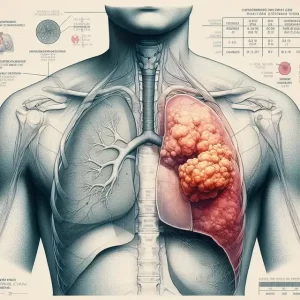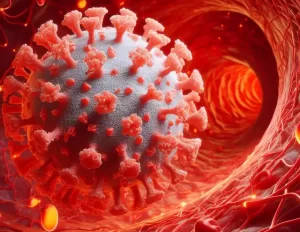Why Should People Consume High-Fiber Foods?
- Brief Intermittent Exercise Reduces Heart Disease and Death Risk
- Personalized Lung Tumor Chips Assess PD-1 Therapy Response
- Study Shows Prior Infection Offers Strong Immunity to Original COVID-19 Strain
- Chinese Food Products Dominate Korean Tables Amid Safety Concerns
- Early Detection of Hypopharyngeal Cancer Possible with Saliva Diagnosis
- EB Virus Could Be Infected by Kiss: A Hidden Threat Linked to Cancer
Why Should People Consume High-Fiber Foods?
- AstraZeneca Admits for the First Time that its COVID Vaccine Has Blood Clot Side Effects
- Was COVID virus leaked from the Chinese WIV lab?
- HIV Cure Research: New Study Links Viral DNA Levels to Spontaneous Control
- FDA has mandated a top-level black box warning for all marketed CAR-T therapies
- Can people with high blood pressure eat peanuts?
- What is the difference between dopamine and dobutamine?
- How long can the patient live after heart stent surgery?
Why Should People Consume High-Fiber Foods?
Recent research highlights the benefits of insoluble fiber for health, revealing the unique bioactive substances found in plant sources of this fiber.
These bioactive substances are associated with reducing the risk of various diseases, including cardiovascular diseases, cancer, and type 2 diabetes.
While the importance of fiber for gut health is well-known, this study suggests the need to recognize the broader health benefits offered by bioactive substances in fiber-rich plant sources.
The findings also suggest opportunities to enhance processed foods with these fiber sources, potentially increasing their nutritional value.

For a long time, health experts have extolled the benefits of insoluble fiber for regular bowel movements and overall health.
A recent study conducted at the University of Minnesota, published in the journal “Nutrients,” provides further evidence of the importance of incorporating fiber into our daily diets.
In this new study, scientists found that each plant-based source of insoluble fiber contains unique bioactive components. These compounds are linked to reducing the risk of cardiovascular diseases, cancer, and type 2 diabetes, demonstrating that their health benefits go beyond just fiber.
One of the authors of the study, Professor Joanne Slavin from the College of Food, Agriculture, and Natural Resource Sciences at the University of Minnesota, explained, “People understand the need for fiber and its connection to gut health, but as scientific research continues to reveal the impact of fiber on overall health and well-being, this area of health is becoming increasingly important. Fiber is a hallmark of health, included in our dietary guidelines and on product labels, but our research indicates that we need to ensure that other valuable components of fiber-rich plant sources – bioactive substances – are also considered beneficial for human health.”
The study compiled existing literature on the health benefits of bioactive components in plant-based insoluble dietary fiber. They found that various plant-based foods, including fruits, vegetables, legumes, nuts, seeds, and whole grains, contain insoluble dietary fiber, with each source containing unique bioactive substances that promote health in different ways. Ideal bioactive substances such as quercetin, resveratrol, epicatechin, anthocyanins, lutein, lycopene, and beta-carotene were discovered in various plant-based foods containing insoluble dietary fiber.
Plant sources containing bioactive substances and insoluble dietary fiber can be used to enhance processed foods, thereby increasing their nutritional value. By-products of food production, such as peels, husks, pulp, or pomace, often contain significant amounts of fiber and bioactive substances, offering unique sustainable nutritional value.
Research targeting consumers found that low-level use of these enhancements does not decrease consumer acceptance of food products.
Jan-Willem Van Klinken, Senior Vice President for Medical, Scientific, and Regulatory Affairs at Brightseed, a co-author of the study, said, “The recommendation to eat more fruits and vegetables is not a novel idea, but most people still struggle to do so. If we can provide widely used fiber-enhanced products with the aim of increasing rather than decreasing bioactive components, we can offer consumers higher nutritional value.”
The latest research on the impact of bioactive components on human health further underscores the need for collaboration between industry, academia, and government to promote awareness and education about bioactive components in the food and health system.
Madeline Timm, the first author of the study, stated, “The literature reviewed and the results of this study can change the way the food and health industry and consumers perceive insoluble dietary fiber and bioactive substances. Continuing research and widespread inclusion of bioactive substances in foods and supplements can truly impact human health.”
Researchers believe further studies are needed to determine methods for preserving and optimizing the extraction and processing of bioactive compounds.
Why Should People Consume High-Fiber Foods?
(source:internet, reference only)
Disclaimer of medicaltrend.org
Important Note: The information provided is for informational purposes only and should not be considered as medical advice.



